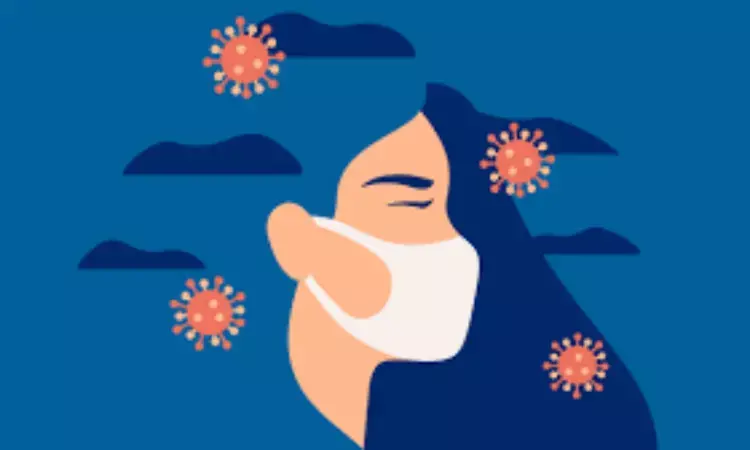- Home
- Medical news & Guidelines
- Anesthesiology
- Cardiology and CTVS
- Critical Care
- Dentistry
- Dermatology
- Diabetes and Endocrinology
- ENT
- Gastroenterology
- Medicine
- Nephrology
- Neurology
- Obstretics-Gynaecology
- Oncology
- Ophthalmology
- Orthopaedics
- Pediatrics-Neonatology
- Psychiatry
- Pulmonology
- Radiology
- Surgery
- Urology
- Laboratory Medicine
- Diet
- Nursing
- Paramedical
- Physiotherapy
- Health news
- Fact Check
- Bone Health Fact Check
- Brain Health Fact Check
- Cancer Related Fact Check
- Child Care Fact Check
- Dental and oral health fact check
- Diabetes and metabolic health fact check
- Diet and Nutrition Fact Check
- Eye and ENT Care Fact Check
- Fitness fact check
- Gut health fact check
- Heart health fact check
- Kidney health fact check
- Medical education fact check
- Men's health fact check
- Respiratory fact check
- Skin and hair care fact check
- Vaccine and Immunization fact check
- Women's health fact check
- AYUSH
- State News
- Andaman and Nicobar Islands
- Andhra Pradesh
- Arunachal Pradesh
- Assam
- Bihar
- Chandigarh
- Chattisgarh
- Dadra and Nagar Haveli
- Daman and Diu
- Delhi
- Goa
- Gujarat
- Haryana
- Himachal Pradesh
- Jammu & Kashmir
- Jharkhand
- Karnataka
- Kerala
- Ladakh
- Lakshadweep
- Madhya Pradesh
- Maharashtra
- Manipur
- Meghalaya
- Mizoram
- Nagaland
- Odisha
- Puducherry
- Punjab
- Rajasthan
- Sikkim
- Tamil Nadu
- Telangana
- Tripura
- Uttar Pradesh
- Uttrakhand
- West Bengal
- Medical Education
- Industry
COVID-19 cases decline, no threat of major outbreak: Experts

Covid-19 Now Endemic in India
New Delhi: India’s fight against COVID-19 has entered a new chapter, with top scientists and public health experts confirming that the virus has become endemic, posing no significant threat of another severe outbreak. The virus is now manifesting in small, scattered clusters rather than large-scale waves, according to official assessments.
Earlier in April this year, India experienced a brief uptick in cases primarily due to the JN.1.16 sub-variant. More recently, variants like LF.7 and LP.8.1.2 have been detected through genome surveillance.
Government data shows that active COVID-19 cases dropped from 7,000 on June 11 to 4,425. Only one Covid-related death was reported in the past 24 hours, indicating a steady downward trend. A total of 112 deaths have been reported due to COVID-19 in India so far this year. Recovery numbers are also rising steadily. In the past 24 hours alone, 1,197 recoveries were recorded, taking the total recoveries in 2025 to 19,435.
Medical Dialogues had previously reported that India has witnessed a slight uptick in COVID-19 cases over the past few days, with the Union Health Ministry updating its official dashboard to reflect 257 active cases across the country. The uptick comes amid a broader regional resurgence in parts of Asia, including Hong Kong and Singapore.
Also Read: COVID-19 Cases rise in India, Doctors Urge Caution
“When transmission efficiency increases, the peak comes faster and the decline is also faster,” said Dr Raman Gangakhedkar, national chair at the Indian Council of Medical Research (ICMR) and former head scientist at the agency. “Covid-19 has become endemic in India. The concerning part is that we don’t want new infections, but the good news is that new variants over the last three years have remained mild or milder,” reports Live Mint.
He noted that many current infections go undetected due to decreased testing, yet they still contribute to natural immunity through antibody generation. This form of silent immunization continues to offer protection against severe disease.
According to TOI, "Covid-19 is now endemic. It is not a serious threat. That's why many people aren't getting themselves tested even when symptoms surface," said a senior doctor. The virus is causing mild fever, with most patients recovering at home in 2 to 3 days. "Only those with co-morbidities such as cancer, kidney disease, and heart disease need to take extra care," the doctor added.
Also Read: New COVID-19 case reported at Silchar Medical College Hospital
Speaking to TOI, Dr Rommel Tickoo, director of internal medicine at Max Saket, said, "We don't advise Covid tests for everyone with fever, cough, and cold. But due to the panic and anxiety caused by a surge in cases, some patients have come to us with positive COVID-19 tests. Treatment involves symptomatic management and rest. In case of Covid or Covid-like symptoms, we also advise keeping away from others to check the spread of infection," he said.
Dr Rajeev Jayadevan, public health expert and past president of the Indian Medical Association (IMA), Cochin, noted that COVID-19 is now behaving like a cyclical virus, with cases rising periodically as population immunity wanes and then falling again.
As population immunity declines, the virus gains the ability to infect more people, leading to a natural rise in cases. However, previous vaccination and earlier exposure to the virus help immune memory protect individuals from severe illness and death. He also emphasised that vulnerable people should stay cautious, particularly during periods of increased transmission.
Dr. Vikas Maurya, head of the respiratory department at Fortis Hospital, Shalimar Bagh, noted that patient load in hospitals has also decreased, and most cases are now manageable at home.
Dr. Arjun Khanna, head of the Pulmonology Department at Amrita Hospital, Faridabad, pointed out that a key feature of the current COVID-19 wave is its reduced clinical distinction from other viral respiratory infections.


